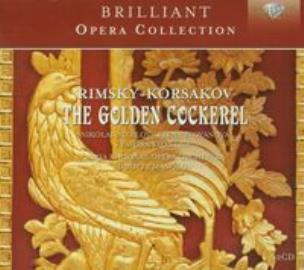- Regulamin
- Koszty dostawy
- Kontakt
- Dziś w ofercie 234 113 produkty
KSIĄŻKI
- Albumy
- Beletrystyka
- Biografie
- Dla dzieci i młodzieży
- Edukacja
- Ekonomia i biznes
- Ezoteryka
- Historia
- Informatyka
- Kalendarze
- Komiksy
- Kryminał i sensacja
- Kultura i sztuka
- Literatura faktu
- Literatura kobieca
- Literatura piękna
- Medycyna
- Nauka języków obcych
- Nauki humanistyczne
- Nauki przyrodnicze
- Nauki ścisłe
- Podręczniki
- Poradniki
- Prawo i administracja
- Przewodniki i podróże
- Psychologia
- Religia
- Sport
- Technika
- Zdrowie i uroda
ZABAWKI
- Artykuły dla niemowląt
- Bączki
- Bujaki i skoczki
- Ciągnij / pchaj
- Dla niemowlaka
- Grzechotki i gryzaki
- Karuzele i pozytywki
- Maty i centra zabaw
- Projektory i lampki
- Sortery i piramidki
- Zabawki
- Edukacyjne i kreatywne
- Figurki
- Klocki
- Lalki
- Pojazdy
- Pluszaki i maskotki
- Sport i rekreacja
- Zabawa w dom
- Zabawki drewniane
- Puzzle
- Do 200 elementów
- 201-500 elementów
- 501-1000 elementów
- Ponad 1000 elementów
- Puzzle 3D
ART. PAP
- Artykuły biurowe
- Artykuły piśmiennicze
- Bloczki i kartki samoprzylepne
- Dziurkacze
- Kalkulatory
- Nożyczki i nożyki
- Skoroszyty
- Teczki
- Wizytowniki
- Zszywacze
- Artykuły szkolne
- Akcesoria szkolne
- Modelowanie
- Notatniki i zeszyty
- Piórniki
- Plecaki i torby
- Pojemniki na śniadanie
- Pomoce naukowe
- Przybory matematyczne
- Przybory rysunkowe
- Upominki i gadżety
- Akcesoria do książek
- Artykuły balowe
- Breloki i zawieszki
- Drobiazgi, różności
- Kubki
- Oferta Świąteczna
- Papeteria, kartki i naklejki
- Skarpetki Many Mornings
- Upominki
GRY
MULTIMEDIA
- Audiobooki
- Beletrystyka
- Biografie i wspomnienia
- Dla dzieci i młodzieży
- Fantastyka
- Filozofia i religia
- Historia
- Literatura faktu i reportaż
- Poradniki
- Sensacja i kryminał
- Filmy DVD/BD
- Animowane
- Biograficzne
- Fantasy
- Horrory
- Komedie
- Romanse
- Science Fiction
- Sensacyjne / kino akcji
- Thrillery
- Muzyka CD
- Alternatywna
- Blues
- Dla dzieci
- Jazz
- Klasyczna
- Piosenka aktorska i poetycka
- Pop
- Rock
- Świąteczna i kolędy
- Akcesoria GSM
- Głośniki
- Kable i adaptery
- Klawiatury
- Myszy
- Słuchawki
PROMOCJE
ZDROWIE
LEGO

Rimsky-Korsakov: The Golden Cockerel
Autor: Rimsky-Korsakov
Wydawca:
Brilliant Classics
ISBN:
5028421944319
EAN:
5028421944319
oprawa:
Plastikowa
czas trwania:
1:58:41
format:
14.0x12.0cm
język:
angielski
Seria:
BRILLIANT OPERA COLLECTION
rok wydania:
2012
(0) Sprawdź recenzje
Opis produktu
Zasady bezpieczeństwa
Nikolay Andreyevich Rimsky-Korsakov showed musical promise as a child, but the pursuit of a Naval career meant that much of his grounding in musical theory was gained in between various tours of duty. Although best known in the Western world for his nationalist orchestral works, Rimsky-Korsakov brought Russian opera to the fore, so that by the end of his life, the genre was flourishing.
The Golden Cockerel, written between 15 October 1906 and 29 August 1907, was inspired by Alexander Pushkin's tale and caused concern among the Russian authorities, with the story detailing the murder of a Tsar and providing a critique of the power associated with Tsarism. This predictably led to trouble with the censor, which demanded that the prologue, epilogue and fourteen lines of the libretto should be cut; Rimsky-Korsakov refused and the work was permitted to only appear in print. At the centre of the opera is the juxtaposition of two of the characters and their respective musical language: that of the rigid marches demonstrating the power of King Dodon and the delicate, ethereal chromaticism of the Queen of Shemaka, designed to sound other-worldly. This recording includes the opera in full, containing none of the cuts demanded by the censor.
Of this 1985 recording by the Sofia National Opera, conducted by Dimiter Manolov, BBC Music Magazine wrote that 'the famous 19-minute coloratura show-piece ... is beautifully encompassed' by Elena Stoyanova, who sings the role of the Queen of Shemakha. The role of King Dodon is sung by Hungarian bass Nikolai Stoilov.
Other information:
- Recorded in 1985.
- Nikolai Rimsky-Korsakov is one of the most important Russian composers of romantic opera. His operas, often on themes taken from Russian folklore and fairy tales, abound in colourful and atmospheric scenes, with just the right tinge of spicy Russian melodic flavours.
- The Golden Cockerel, based on a tale by Pushkin, was censored by the Russian authorities, accused of hidden political motives. This performance offers the complete, uncut version of the opera, one of Rimsky's finest and best known.
Excellent performance by great Bulgarian voices and forces, a superb recording from the Balkanton catalogue.
- The Booklet includes the synopsis of the opera, as well as notes on the composer and the work.
CENA:
25,35
zł
Cena detaliczna:
29,90 zł
15%
rabatu
Najniższa cena z ostatnich 30 dni: 25,35 zł
Produkt niedostępny
Uwaga!!!
Ten produkt jest zapowiedzią. Realizacja Twojego zamówienia ulegnie przez to wydłużeniu do czasu premiery tej pozycji. Czy chcesz dodać ten produkt do koszyka?


Wybierz wariant produktu
